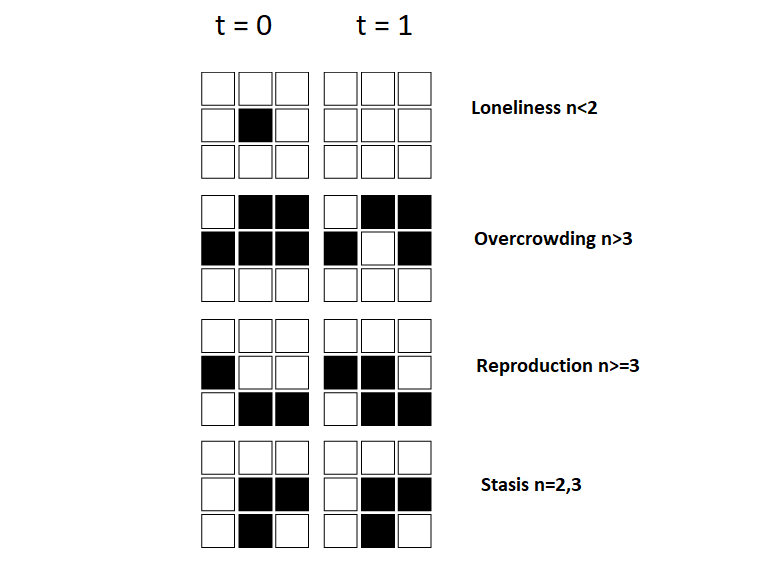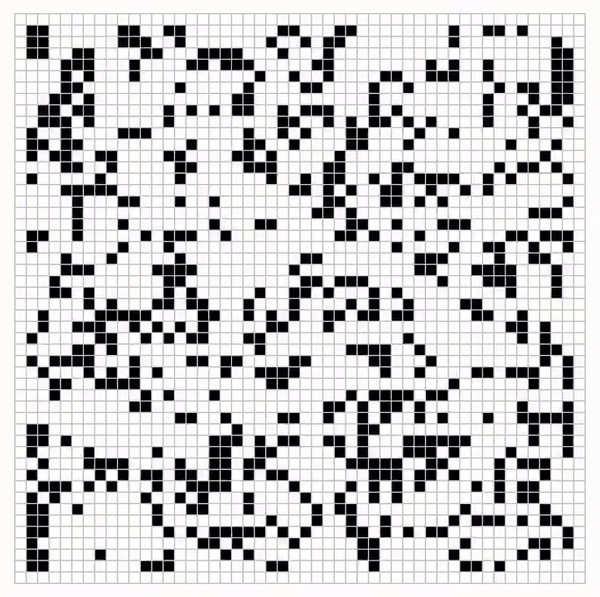Cellular Automatons (CA) are evolving grid-based computational systems which model complexity growth. In simpler words, cellular automatons are evolving patterns that are unidirectional and chaotic. The rules of evolution are very elementary and simple however, the evolution gives rise to highly complex structures and behaviour. CA have been proposed as models of how complexity grows in the physical chaotic system and how symmetry can emerge from simple laws. A parallel that I like to draw is to compare CA with Statistical Mechanics: The concept of temperature does not exist at a molecular/atomic level for gases. Temperature is not a property of a single molecule. However, when you put millions/billions of molecules in a box the dynamics and kinematics between the molecules give rise to Temperature. We call temperature an “emergent” property of the ensemble. CA behave in a similar way - they follow very simple local rules and a collection of CA gives rise to “emergent” symmetries and complex behaviour.
In this blog we will focus on the most famous example of a 2d CA known as “Game-of-Life” (GOL). This was discovered by the Conway in 1970s. Evolution of a cell depends on its neighbours. A cell has two states — dead (black) or alive (white). The automaton follows these simple rules,
- A cell with all dead neighbours dies because of loneliness.
- A cell with more than 3 live neighbours dies of starvation
- A dead cell with 3 or more live neighbours becomes alive because of reproduction
- A cell with 2 or 3 live neighbours remains in the same state — stasis.
We represent all these states in the following figure,

Rules for GOL (n = neighbours)
We let a 2d grid of CA evolve over time and obtain interesting structures. The initial starting point is typically random. Certain fixed starting point gives rise to specific structures. People have tried to classify the zoology of the structures that can appear. Let us see some examples of evolution with random initial states,
#deep-learning #interesting #intelligence #cellular-automata #deep learning
